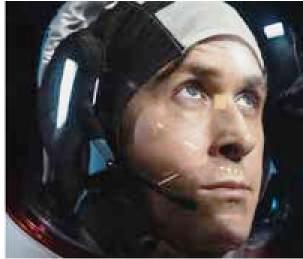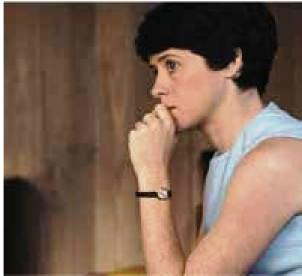|
Opening THE Book 7 with Rev John
 31st December 2018 31st December 2018
as published by St Andrew's Church in the Gorleston Community Magazine
Rev John Kinchin-Smith
Assistant Minister, St Andrew’s Church
In thinking about the Bible in recent issues, we’ve discovered that it tells us that there is an amazing God of perfect love and perfect justice, that the universe is not just the result of random chance but God’s beautiful creation and that His purpose for human beings is to live in perfect harmony with each other, with creation and with Himself. We’ve also learned that evil entered the world because of human selfishness, that God continues to be actively involved in his creation (not least to put things right) and, because God loves us so much, He’s made rules to guide and protect us
But this month is the month of “Christmas”. How does this fit into the story of the Bible? What’s the connection with all we’ve learned so far?
We’ll leave the Old Testament for a bit and travel into those 27 books we call ‘The New Testament’ beginning with the book called ‘Matthew’ and ending with the book called ‘Revelation’. But everything in the Bible is connected. You cannot understand the end without the beginning. Nor can you really understand Christmas without understanding what has happened before
 In the New Testament book called ‘John’ (chapter 3 and verse 16) we read: “God so loved the world that He gave His one and only Son, that whoever believes in Him may not perish but have eternal life”. This is what Christmas is really all about. It’s about that amazing loving God, whom we’ve been discovering, intervening and being actively involved in His creation in the most generous and self-giving way. It’s about everything that’s happened before leading up to a moment when all of the promises God’s made, all the long history of thousands of years, comes to a climax. It’s the best Christmas present ever – God’s gift of His own Son to broken, rebellious, self-seeking human beings so that they might come to be in relationship with him now and forever. But it’s going to take the most awesome sacrifice in human history. It’s going to show how much this God of the Bible truly loves us. Stay with me week month as we continue to see how In the New Testament book called ‘John’ (chapter 3 and verse 16) we read: “God so loved the world that He gave His one and only Son, that whoever believes in Him may not perish but have eternal life”. This is what Christmas is really all about. It’s about that amazing loving God, whom we’ve been discovering, intervening and being actively involved in His creation in the most generous and self-giving way. It’s about everything that’s happened before leading up to a moment when all of the promises God’s made, all the long history of thousands of years, comes to a climax. It’s the best Christmas present ever – God’s gift of His own Son to broken, rebellious, self-seeking human beings so that they might come to be in relationship with him now and forever. But it’s going to take the most awesome sacrifice in human history. It’s going to show how much this God of the Bible truly loves us. Stay with me week month as we continue to see how
Changing your perception
 ‘One small step for man, one giant leap for mankind’. It’s a quote that is so familiar, and yet so little understood. Over the half-century since Neil Armstrong stepped onto the moon, we have become accustomed to the famous footage, shot at a distance by a camera mounted on the leg of the lunar lander. But First Man provides a first-person experience, as we see that step from Armstrong’s perspective ‘One small step for man, one giant leap for mankind’. It’s a quote that is so familiar, and yet so little understood. Over the half-century since Neil Armstrong stepped onto the moon, we have become accustomed to the famous footage, shot at a distance by a camera mounted on the leg of the lunar lander. But First Man provides a first-person experience, as we see that step from Armstrong’s perspective
 This film takes us inside Armstrong’s space suit, inside his mind, inside his family. Throughout the film, we don’t just observe the cool smooth surface of a helmet; we see up close the sweating distorted faces of the people inside. We don’t just watch an apparently effortless image of success; we experience the reality of those who knew they might not make it. And we don’t just observe individual astronauts; we see them as husbands and fathers. Using close-up, handheld camera techniques this film draws us into the visceral reality of spaceflight. As Josh Singer, the screenwriter says: “these are ordinary men and women who sacrificed greatly”. There is a key line, fairly early in the film, in which Armstrong reflects: “Space exploration changes your perception. It allows us to see things that we should have seen a long time ago”. That is a powerful message for our time. Instead of constantly focusing down on our little screens, what might happen if we look up to the heavens? Instead of taking our lives for granted, what might happen if we recognise the sacrifices that make them possible? This film takes us inside Armstrong’s space suit, inside his mind, inside his family. Throughout the film, we don’t just observe the cool smooth surface of a helmet; we see up close the sweating distorted faces of the people inside. We don’t just watch an apparently effortless image of success; we experience the reality of those who knew they might not make it. And we don’t just observe individual astronauts; we see them as husbands and fathers. Using close-up, handheld camera techniques this film draws us into the visceral reality of spaceflight. As Josh Singer, the screenwriter says: “these are ordinary men and women who sacrificed greatly”. There is a key line, fairly early in the film, in which Armstrong reflects: “Space exploration changes your perception. It allows us to see things that we should have seen a long time ago”. That is a powerful message for our time. Instead of constantly focusing down on our little screens, what might happen if we look up to the heavens? Instead of taking our lives for granted, what might happen if we recognise the sacrifices that make them possible?
The views carried here are those of the author, not of Network Yarmouth, and are intended to stimulate constructive and good-natured debate between website users
We welcome your thoughts and comments, posted below, upon the ideas expressed here
Click here to read our forum and comment posting guidelines
|
|
|
|